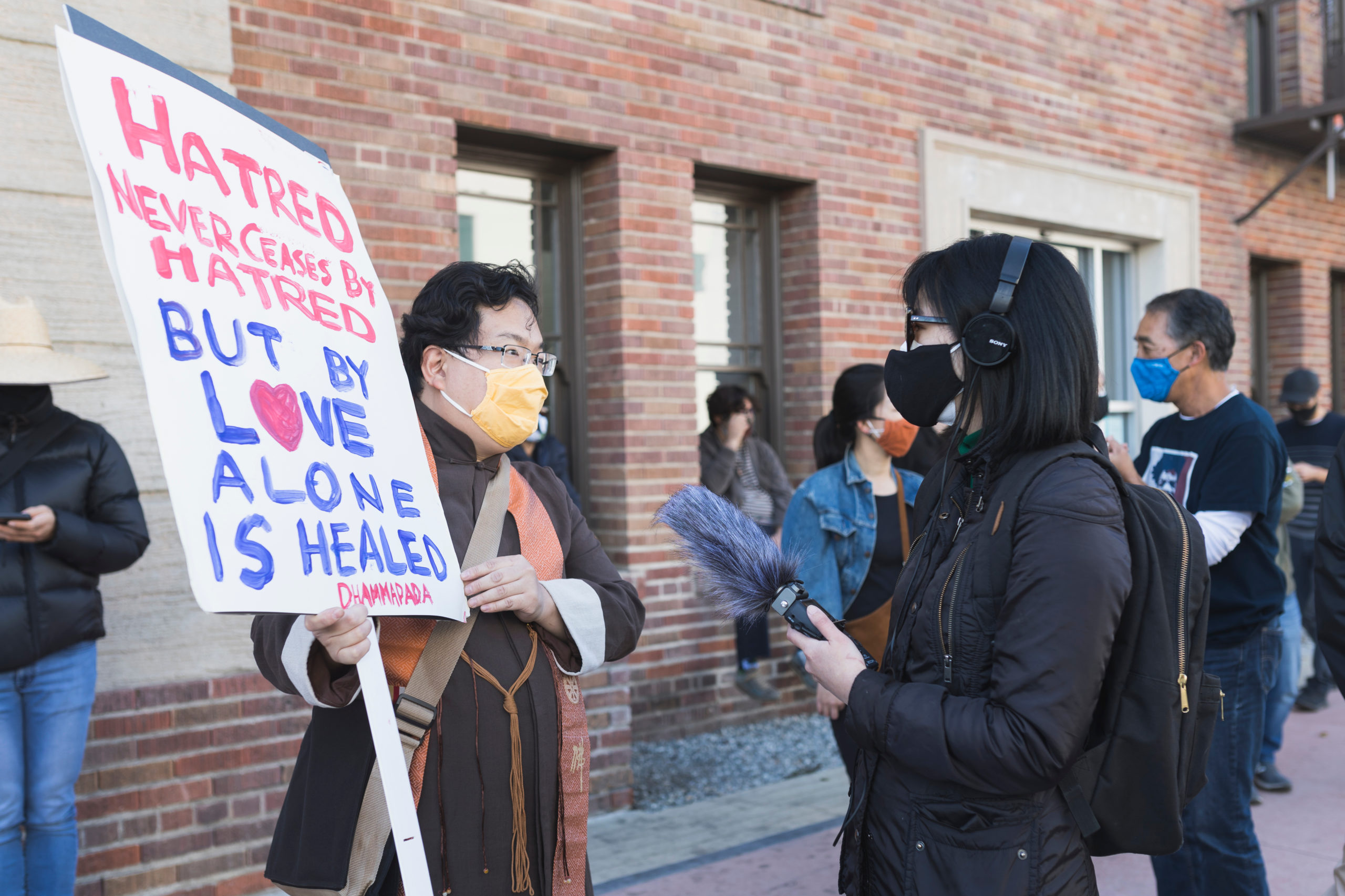This week’s tragedy could have been avoided. For months, AAPI women in journalism have been sounding the alarm on the dramatic rise in racist and xenophobic attacks. Unfortunately, their calls were not only largely ignored by the public and policy makers, they were also minimized within their own news outlets. This historic silencing of the AAPI community, and AAPI women especially, must end.
This is why we are committed to supporting AAPI women’s leadership in journalism. AAPI journalists and media leaders have shown incredible dedication to bringing nuanced, inclusive and community-based reporting to their audiences over the last year, while risking physical, mental and emotional harm.
This week, they carried the tremendous burden of providing responsible coverage, while fearing for their own safety. They have gone to work while grieving not only the loss of life from the Atlanta attacks, but the ongoing disproportionately high rates of COVID-19 cases and fatalities affecting the AAPI community.
The work of AAPI women journalists — spanning decades and even centuries — has continuously centered AAPI communities’ experiences, perspectives and information needs. They have pushed the entire journalism industry forward by demonstrating how to center and serve those who have been historically excluded by the media. This is why we’re urging our fellow funders to join us in supporting these leaders.
The work of AAPI women journalists… has continuously centered AAPI communities’ experiences, perspectives and information needs. They have pushed the entire journalism industry forward by demonstrating how to center and serve those who have been historically excluded by the media.
At the core of much of our work in growing trusted and equitable journalism is the leadership of AAPI women. Here are just a few of the groups at the helm of this work:
- The Asian American Journalists Association, led by Executive Director Naomi Tacuyan Underwood, is a membership organization working to increase the visibility and inclusion of AAPI journalists and promote fair and accurate reporting of the AAPI community.
- The Maynard Institute, co-directed by Evelyn Hsu, develops and champions the leadership of journalists of color and drives more diverse and inclusive practices within news outlets across the industry.
- Open News brings together journalists, editors, developers, and designers to create shared processes and tech within media. Sisi Wei, their Director of Programs, leads initiatives focused on creating a more just and inclusive journalism industry, including Vision25, a new coalition with Maynard Institute and the Online News Association.
- Solidarity Journalism is an initiative led by Dr. Anita Varma at the Markkula Center for Applied Ethics at Santa Clara University dedicated to improving coverage of historically marginalized communities by centering their experiences and perspectives in reporting.
- URL Media, co-founded by Mitra Kalita, is a new, decentralized network of Black and Brown news organizations that focuses on content, distribution and other shared resources to build long-term sustainability.
Across our grantees other leaders like Anna Nirmala at the American Journalism Project, Alison Go at Chalkbeat, Anika Anand at LION Publishers, and Christina Shih at the News Revenue Hub are working to align journalism’s business model with more equitable and just coverage of communities.
The media’s historic stereotyping and exclusion of communities of color has done incredible harm. It’s time for a transformation. As funders, we must invest in the leadership of individuals and organizations doing the work to ensure fair and accurate reporting of AAPI communities. We must support their leadership not only in times of crisis — like the events of this week — but throughout our long-term strategies to build more community-driven journalism.
For those wondering where to get started, Asian Americans/Pacific Islanders in Philanthropy (AAPIP) has put together a list of resources, organizations and coalitions that foundations can invest in to support AAPI communities.
